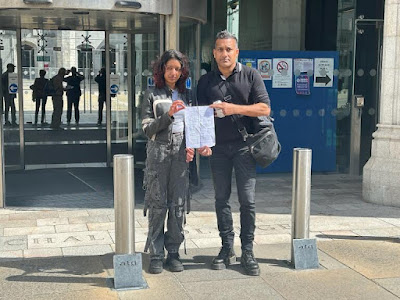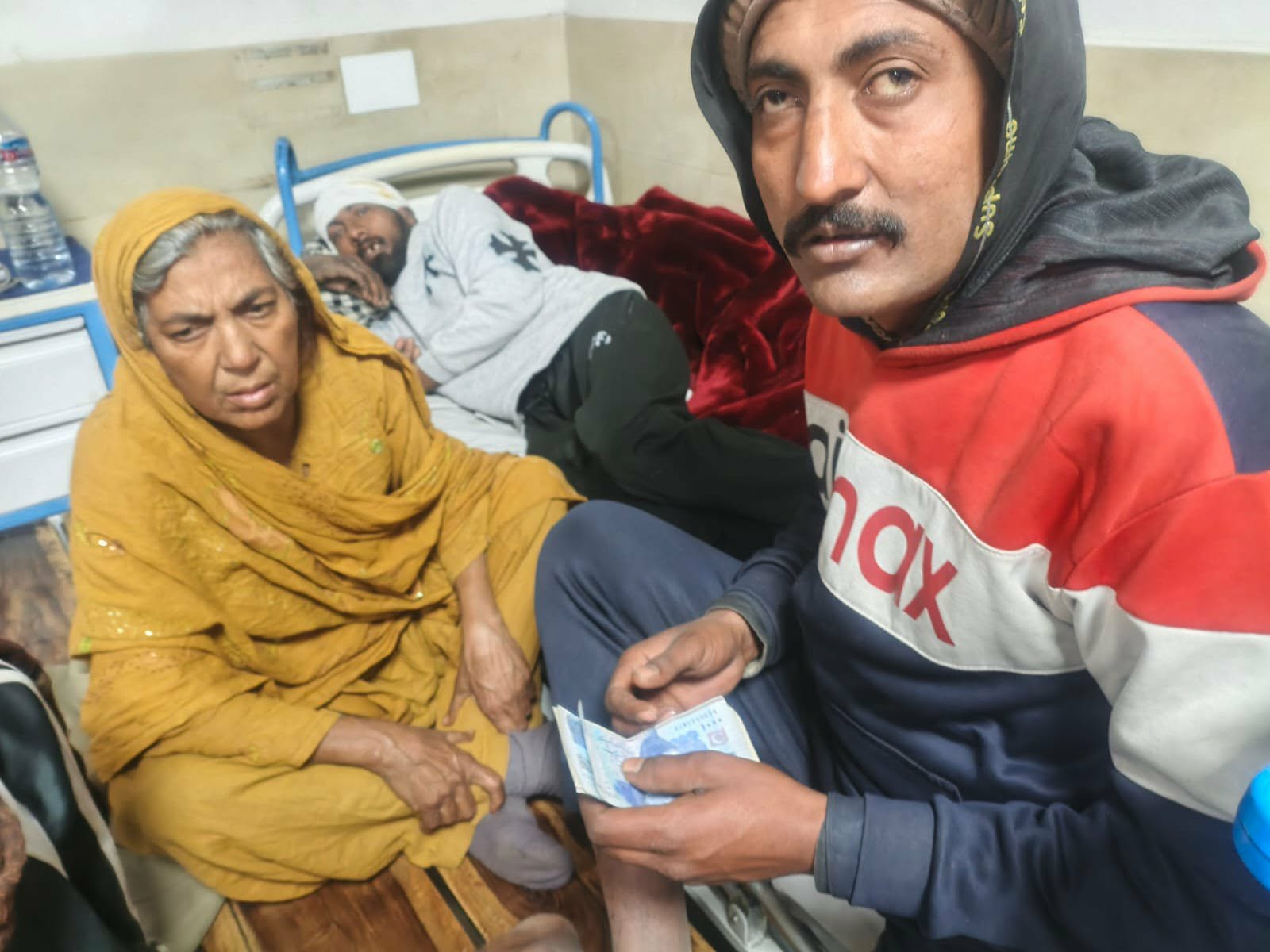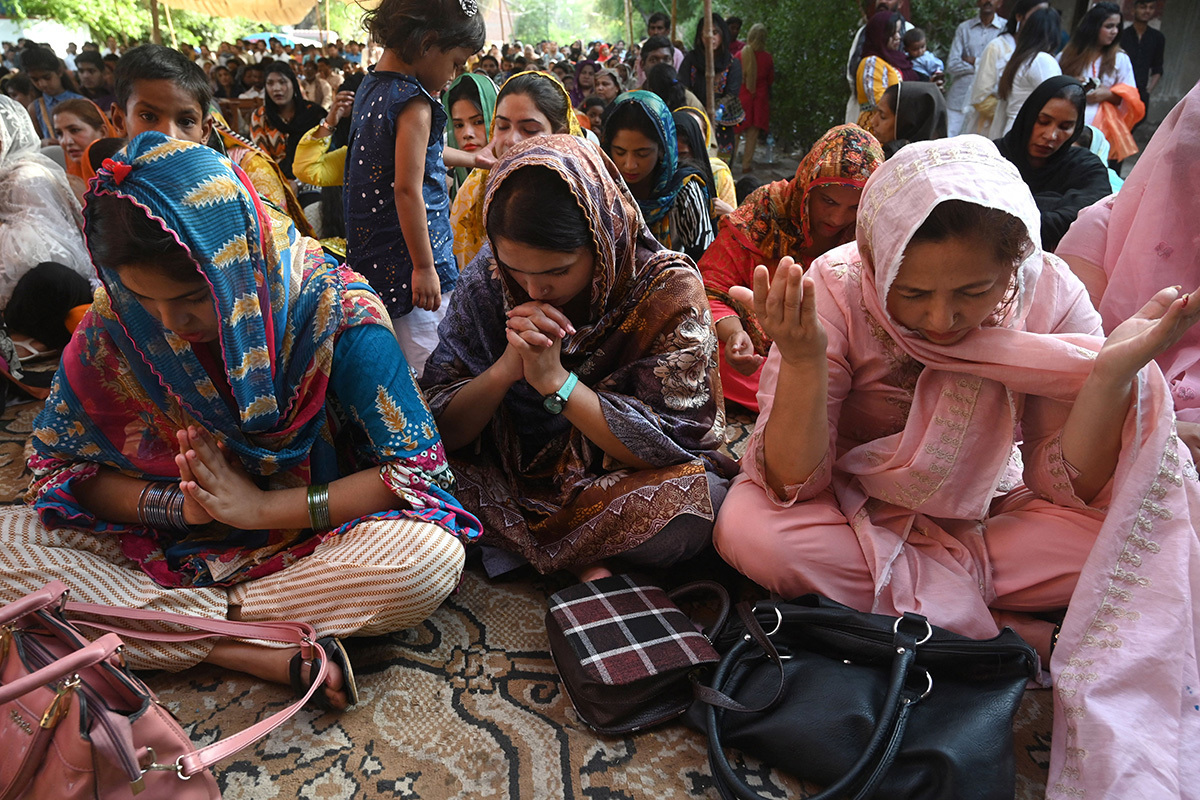UK: Wilson Chowdhry and his daughter Hannah Chowdhry taking the lead in the first meeting with senior Aberdeen council officers, advocating f
New Child Marriage Law in Pakistan Marks Progress, But Cultural and Legal Hurdles Remain. Report by Hannah Chowdhry
Islamabad: Pakistan has taken a major step forward in the fight against child marriage. On May 30, 2025, President Asif Ali Zardari signed into law the Child Marriage Restraint Bill, establishing 18 as the legal minimum age for marriage across the country. The law bans any nikah registrar from solemnizing marriages involving individuals under the age of 18 and sets penalties including up to one year in prison and fines of PKR 100,000. Adult men marrying underage girls may face up to three years of rigorous imprisonment.
For human rights groups, minority communities, and activists who have long campaigned for this change, the bill is a long-overdue lifeline for vulnerable girls at risk of being robbed of their childhood, education, and agency.
Juliet Chowdhry, Trustee for the British Asian Christian Association (BACA), welcomed the bill while voicing some reservations:
“While we welcome this legislative progress—which, for the first time, introduces a nationwide Child Marriage Restraint Law mirroring the earlier provincial legislation in Sindh—we believe the prescribed punishments remain insufficient to effectively deter such serious offences. This is particularly concerning given that existing laws with even harsher penalties have so far failed to curb the practice. It is also vital that these new provisions are not undermined by Qisas and Diyat laws, which have historically enabled perpetrators to evade justice through compensatory payments—often accepted by victims’ families under coercion or social pressure. While some Western countries permit marriage below 18 with parental consent, we firmly believe that 18 should be the minimum legal age in Pakistan, where entrenched cultural norms, systemic gender inequality, and widespread poverty have contributed to the devaluation and exploitation of girls on a disturbing scale.”
This new law comes in addition to an existing but largely ineffective body of legislation meant to curb harmful marriage practices. For example, the original Child Marriage Restraint Act of 1929 set minimum age thresholds, and Section 310-A of the Pakistan Penal Code (PPC) penalizes giving a female in marriage as compensation for a crime—a practice still occurring in tribal areas—with punishments of up to seven years (and not less than three) plus a fine of Rs. 500,000. Similarly, Section 498-B of the PPC criminalizes forced marriage, and Section 498-C prohibits the deeply troubling custom of marrying women symbolically to the Quran to deny them property rights. Watta Satta (bride exchange) arrangements also often lead to child marriages, and are prosecutable under child protection laws if minors are involved. Even Section 498-A of the PPC punishes those who deceitfully deprive women of inheritance rights, with penalties of up to 10 years imprisonment and Rs. 1 million in fines.
Despite these seemingly strong legal provisions, these practices remain widespread—particularly among poor and rural families. Punishments may look severe on paper, but implementation is weak, and convictions are rare. Corruption, religious bias, patriarchal norms, and an inconsistent judiciary continue to allow child and forced marriages to persist across Pakistan.
According to a 2018 demographic survey, 29% of girls are married before the age of 18, and 4% before they reach 15. Girls from minority communities—particularly Christians and Hindus—are especially vulnerable to forced and underage marriages, often following abductions and sexual violence.
In 2014, the Muslim charity Movement of Solidarity and Peace estimated that 500 Christian girls were abducted, raped, and forced into Islamic marriages every year—a figure that activists now believe has only grown. Courts often deny justice to these victims, citing Sharia principles over more protective civil or provincial legislation, such as the Sindh Child Marriage Restraint Act 2013, which itself has failed to dent the practice.
Highlighting the urgent need for further systemic reform, Juliet Chowdhry commented on the alarming treatment of abducted Christian girls:
“Christian families in Pakistan live under the constant fear that their daughters may be abducted, forcibly converted, and married against their will. More needs to be done to protect these victims. It is deeply unjust that abducted girls are not immediately returned to their families, but are instead placed in Darul Aman shelters—cut off from parental contact—while courts deliberate on the legality of marriages that should be void due to the girls’ age. Disturbingly, we have received allegations that perpetrators are able to bribe their way into these shelters, where they intimidate victims into accepting forced marriages by threatening to harm their families. This broken system must change. A further update to the legislation is urgently required to ensure justice, transparency, and genuine protection for vulnerable children and their families.”
This systemic neglect continues despite the introduction of protective laws. Girls who are married off early are at far greater risk of dropping out of school, facing domestic abuse, and suffering life-threatening complications from early pregnancies. Teen mothers are significantly more likely to die during childbirth than women in their twenties.
However, not everyone is in agreement about the new legal direction. Just days before the law was passed, the Council of Islamic Ideology (CII)—a constitutional advisory body—declared the child marriage bill “un-Islamic.” In its 243rd session, the CII rejected key elements of the bill, including the uniform age restriction and the classification of child marriage as abuse.
Juliet Chowdhry responded strongly to the Council’s statement:
“We are deeply concerned by the recent remarks from the Council of Islamic Ideology, whose interpretation of Islamic principles may be influenced by historical contexts, such as the age of the Prophet Muhammad’s wives. However, we must recognise that we live in a modern era—one in which women’s rights have significantly evolved, and where the protection of children must take precedence. Faith and human rights are not mutually exclusive, and it is essential that religious interpretations align with contemporary standards of justice, dignity, and child welfare.”
The resistance from religious authorities underscores the deep-rooted tension between progressive legal reforms and traditionalist interpretations of religious texts in Pakistan. Despite the backlash, the new law provides mechanisms for court intervention, anonymity for whistleblowers, and a more cohesive legal foundation to combat early and forced marriages.
As a Christian advocacy organization, BACA continues to call for more stringent enforcement, harsher penalties for offenders, and legal reform to prevent Sharia-based legal loopholes from undermining child protection. This law may not end the crisis, but it does signal a long-awaited national acknowledgment of the problem.
The British Asian Christian Association calls on the Government of Pakistan to take urgent steps to protect vulnerable girls by establishing an independent and effective police ombudsman to ensure minority families receive fair treatment without needing political intervention. We urge the judiciary to uphold Pakistan’s constitution and legal statutes without bias, and we recommend comprehensive training for police, judges, and legal professionals on gender justice and minority rights. A robust professional standards mechanism must also be introduced to hold authorities accountable for breaches of justice and due process.
You May Also Like
Sialkot: A 24-year-old Christian farm worker with an intellectual disability was brutally beaten by his Muslim employer in Sialkot for arriving lat
Faisalabad (January: Human Rights Focus Pakistan (HRFP) strongly condemns the brutal sexual assault of a six-year-old Christian girl, Shamaya Salee

On demand of our readers, I have decided to release E-Book version of "Trial of Pakistani Christian Nation" on website of PCP which can also be viewed on website of Pakistan Christian Congress www.pakistanchristiancongress.org . You can read chapter wise by clicking tab on left handside of PDF format of E-Book.









